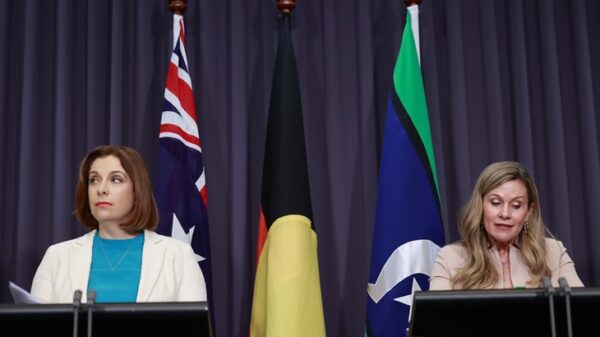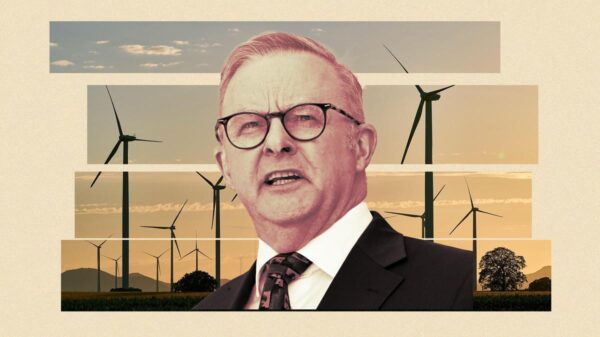UPDATE: In a shocking political shift, the anti-immigration Reform Party, led by **Nigel Farage**, is poised to potentially form the next UK government if elections were held today. This development highlights the growing discontent among voters over the government’s handling of immigration and economic issues.
Just days ago, **Keir Starmer**, leader of the Labour Party, faced intense scrutiny during a summit in **London**. The gathering focused on the future of progressive politics, as populist parties gain traction amid crises in established democracies. With less than **15 months** since Labour’s significant victory in the **2024 General Election**, support for Farage’s Reform Party has skyrocketed due to the **Starmer government’s** failure to curb the influx of illegal migrants crossing the **English Channel**.
Recent polls indicate that the Reform Party could capitalize on this discontent, driven by a surge in migrants and the Conservative Party’s long-standing mismanagement of immigration policies. Over **750,000** migrants entered the UK in **2022**, a situation exacerbated by historical tensions following the **2016 Brexit** referendum, which was largely influenced by concerns over immigration.
The rising disillusionment among traditional Conservative voters, coupled with the frustration of many working-class Labour supporters, has led to a dramatic shift in political loyalties. Farage now effectively leads the opposition as the public’s frustration mounts over strained social services and infrastructure, leading to historic lows in support for the Tories.
Amidst this chaos, the UK faces an economic backdrop that has stagnated for over **15 years**, further complicating the immigration debate. Economic policies adopted since the **2008 financial crisis** have resulted in high public debt and lackluster growth, while the departure from the EU has hampered trade. The impact of these economic woes is reflected in public opinion, where migrants are often scapegoated for broader systemic issues, such as welfare policies that allow over **230,000** working-age men under **30** to claim disability benefits without job-seeking obligations.
The current situation poses urgent questions for both the UK and other nations grappling with similar challenges. Prime Minister **Anthony Albanese** of Australia recently emphasized that strong border policies have helped prevent a similar rise of anti-immigration populism seen in the US and Europe. However, he cautioned against complacency, noting the significant turnout at Australia’s recent **March for Australia**, which highlighted public concerns over the pressure immigration puts on housing and infrastructure.
As the political climate evolves, many are calling for a comprehensive approach to immigration policy that aligns with economic growth, focusing on attracting highly skilled migrants to fill genuine labor shortages. The ongoing situation in the UK serves as a critical reminder of the interconnectedness of immigration and economic policy, urging governments worldwide to consider the broader implications of their immigration strategies.
Moving forward, all eyes will be on the Labour Party and the Reform Party as they navigate this turbulent political landscape. The potential for a significant political shift in the UK could have lasting impacts, not just domestically, but also on global migration policies as nations respond to the growing pressures of economic discontent and immigration.
As developments unfold, readers are encouraged to stay informed about this rapidly changing situation and its implications for both the UK and the world.






























































